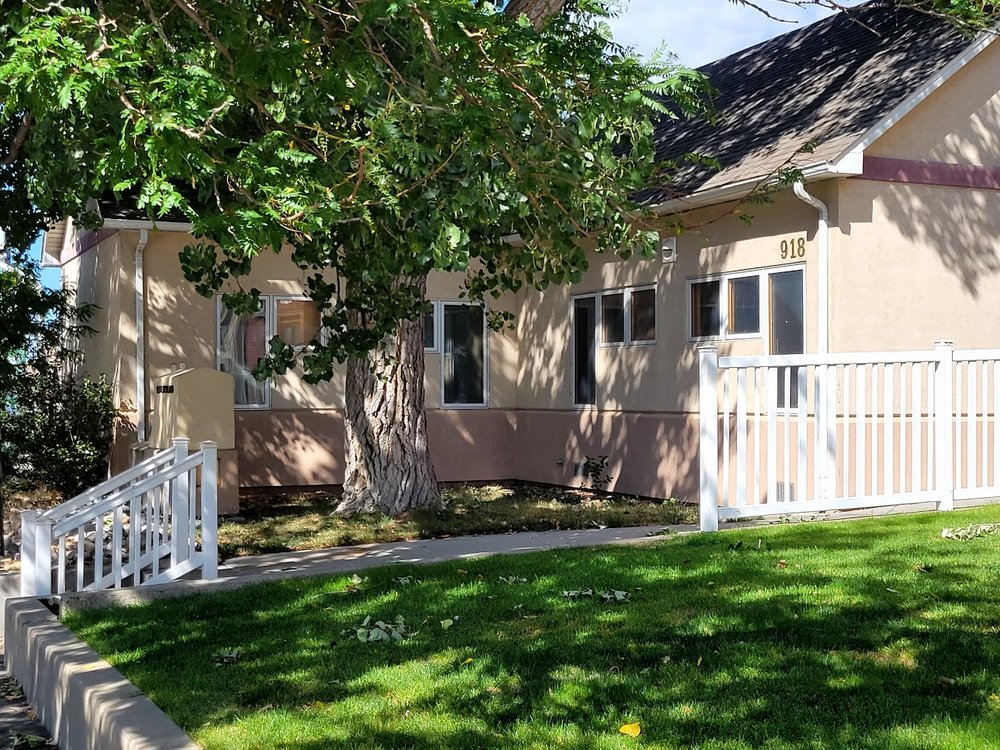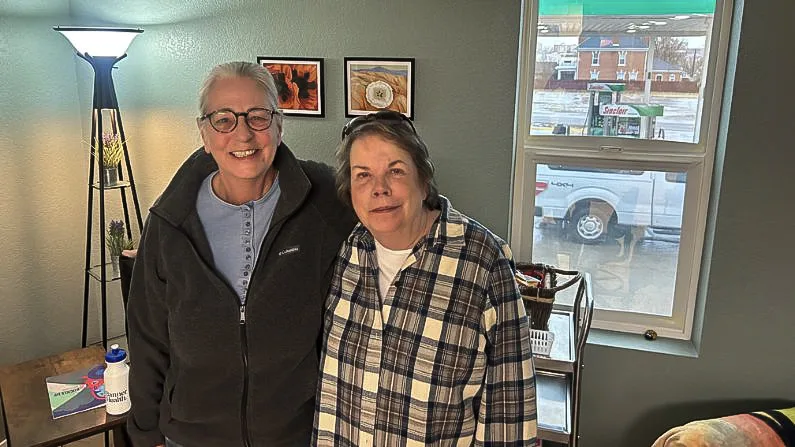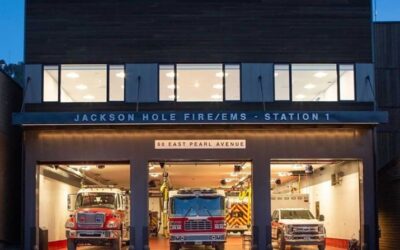Around two weeks ago, the clinic administrator at Wellspring Health Access, Brittany Brown, got a text message from a number she didn’t recognize.
She was in bed, at home.
“This one gentleman chose to text me and let me know that if he were to ever catch any of our doctors, he would physically assault them,” said Brown.
For Brown and the rest of the staff, the threat was another in a long list of threats and setbacks Wellspring has experienced since it opened.
Wellspring Health Access in Casper has faced arson, a local backlash and near-constant protest.
“When I got hired here, I knew,” Brown said. “I know violence is a possibility, I know legally shutting us down is a possibility. I know that there’s a good chance that I may not have this job (much longer).”
That uncertainty continues with the passage of House Bill 148, which made it through the Wyoming Legislature this month. It would require the clinic to become a licensed ambulatory surgical center.
Supporters of the bill have said it’s meant to keep women safe when receiving procedural abortions in the state.
Critics believe it’s an attempt to keep abortion inaccessible in Wyoming if a pending legal challenge to a near-total abortion ban ends up succeeding.
They’ve said the bill is intended to force the closure of just one business: Wellspring.
There is one other abortion provider in the state — at St. John’s in Jackson — but that doctor only offers medication abortions, not procedural ones, so wouldn’t be impacted by the bill.
Meanwhile, the Casper business looks like any other health clinic.
“This is (the) lobby, obviously, where patients and their support people wait and hang out for us, (we) try to make it as comfortable and cozy as possible,” Brown said, walking through the clinic.
Outside, gray storm clouds rippled across the horizon. A gang of wild turkeys ambled down the sidewalk.
“We want people to kind of just relax a little bit once they get here, because of course, getting here can be quite the ordeal,” Brown said.

The Wellspring Health Access clinic in Casper, which opened last year after delays from an arson attack. (Wyoming Public Media)
Next, Brown walked down a hallway leading to the exam rooms. Paintings of flowers hung on many of the walls. A framed sign reads: “Keep your laws off my body.”
“This is our recovery room,” Brown said. “After procedures, our patients come in here. The chairs recline, we give them a cozy blanket, a heating pad, snacks and drinks.”
Wellspring provides a range of women’s health services, including pelvic exams, cancer screenings and procedural abortions for patients in Wyoming, and in states nearby that have passed abortion bans, like South Dakota, North Dakota and Idaho.
Brown said roughly half the patients the clinic sees are traveling from across the state and the country.
“Anybody who’s familiar with Wyoming knows that for a lot of specialty care, you better be planning on getting in a car and driving for several hours,” she said.
The farthest distance a patient has traveled to receive care at Wellspring? Louisiana.
Once they show up at the clinic, protestors from crisis pregnancy centers in the area are often already waiting for patients at the edge of the property.
Debra Cheatham is a volunteer at Wellspring and a Casper resident.
Every week, she and other volunteers escort patients from their cars to the door, often as protestors are loudly praying, or shouting things like: “‘You don’t have to do this, your mother didn’t choose this. Shame on you for doing this.’”
Holly Thompson is another volunteer.
“They will shout out, ‘Well, don’t do that, don’t go in there, because you’re going to commit suicide later in life,’” said Thompson.
It’s personal for Thompson. She had an abortion when she was 21, years before Roe v. Wade went into effect and became the law of the land.
“The reason I had it was because I was a first-year teacher, a brand new teacher in Rock Springs, Wyoming,” Thompson said. “And women could be fired for being pregnant and not married before Roe v. Wade … I promised myself back then that if there’s anything I could do to help women in the future, I would do that.”
The other volunteer, Debra Cheatham, said her father practiced as an OB-GYN in Casper for years, and that his conviction about the importance of women’s reproductive health inspired her to volunteer.
Cheatham said he went down that path after a woman who was sick with sepsis sought help from him.
After she died, Cheatham’s father asked her husband — now a widower — how she got sick.
“And he said, ‘Well, she went to Mexico for an abortion,’” she said. “And my dad asked him, ‘Why?’ And the guy broke into tears and said, ‘We already have six kids. We couldn’t afford another one.’”
Most abortion procedures performed at clinics like Wellspring aren’t generally considered complex enough to require the same facilities that hospitals need for surgeries.
But House Bill 148 requires clinics that provide procedural abortions in Wyoming to be licensed and equipped to do surgeries anyways.
Rep. Martha Lawley (R-Worland) is the sponsor of HB 148.
“We have a duty to regulate abortion for the health and safety of women in Wyoming who would choose an abortion,” she said.
Lawley’s view is that as long as procedural abortions remain legal in Wyoming, bills like hers are necessary to ensure patient safety.
“In the event of a botched abortion, it’s important that there be a kind of continuity of care between the doctor who performed that abortion and the facility where that woman would be taken to for further care,” she said.
But Wellspring’s founder, Julie Burkhart, said abortion is one of the safest medical procedures with a complication rate less than 2%. She disagrees with the notion that women need the new regulation.
“For Wellspring, we just did our statistics for 2023. And we are right there, right on target,” said Burkhart.
If HB 148 were to pass into law, Burkhart said she’s concerned Wellspring might need to shut down some or all of its services, at least temporarily.
During that time, the clinic could make physical renovations to hallways and doors, and likely install a new H-VAC system to bring it up to code.
If Wellspring doesn’t meet the requirements, it could be fined as much as $1,000 for each violation as part of a misdemeanor offense.
Each calendar day that a violation occurs or continues would be a separate offense.
Gov. Mark Gordon has until March 23 to veto HB 148, sign it or let it become law without his signature.
This reporting was made possible by a grant from the Corporation For Public Broadcasting, supporting state government coverage in the state. Wyoming Public Media and Jackson Hole Community Radio are partnering to cover state issues both on air and online.





